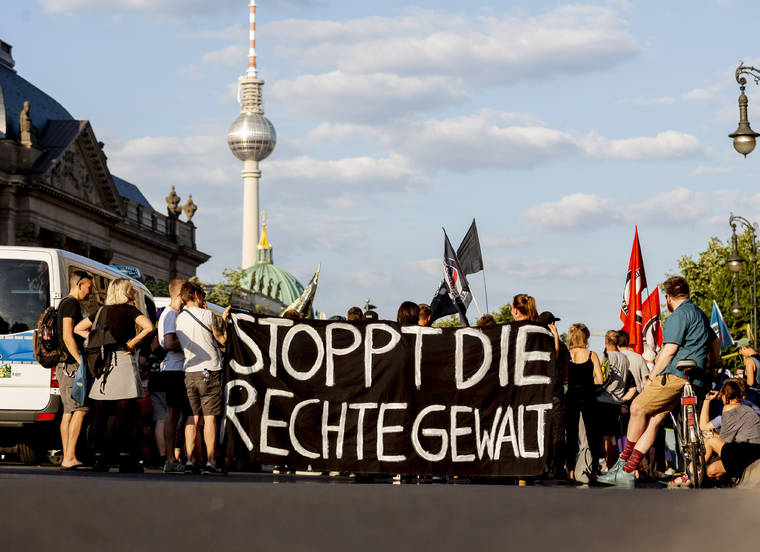BERLIN — Chancellor Angela Merkel said the German government is “very, very serious” about fighting far-right extremism that presents “a big challenge for all of us” after a man with anti-migrant views allegedly killed a regional official from Merkel’s party.
Far-right extremists “need to be fought from the beginning without any taboo,” Merkel said Saturday at a gathering of Lutheran Protestants in the western city of Dortmund.
The Germany leader called the slaying of Kassel administrator Walter Luebcke, 65, who was found shot in the head at his home on June 2, “not only a gruesome act, but a big challenge for all of us to check on all levels (of society) for far-right tendencies.”
A week ago, police arrested a 45-year-old German man, Stephan Ernst, as the alleged killer. Ernst was known to police as a far-right extremist with convictions for violent crimes dating from the late 1980s to 2009, German media reported. They include a 1993 pipe bomb attack on a refugee shelter.
German Interior Minister Horst Seehofer also vowed Saturday to crack down harder on far-right crime, which he said had become “a real danger”.
“This murder motivated me to do everything to up the security,” Seehofer told Germany’s Funke newspaper group Saturday. “It’s our obligation to do everything to protect those who are being threatened.”
Meanwhile, several hundred people participated in a vigil Saturday for Luebcke in his hometown of Wolfhagen near Kassel, the central city where he led the regional government office, German news agency dpa reported.
Luebcke was known for taking a strong stance in favor of the welcoming refugee policy Merkel adopted during an immigration influx in 2015, when hundreds of thousands of people fleeing war and persecution sought shelter in Germany.
The slaying has unsettled Germans and evoked memories of the National Socialist Underground, a neo-Nazi group found responsible for killing 10 people in Germany between 2000 and 2007.
Most of the NSU victims were immigrants. Authorities did not connect the killings to far-right activity until 2011, when two of the group’s three core members died after a botched bank robbery.


